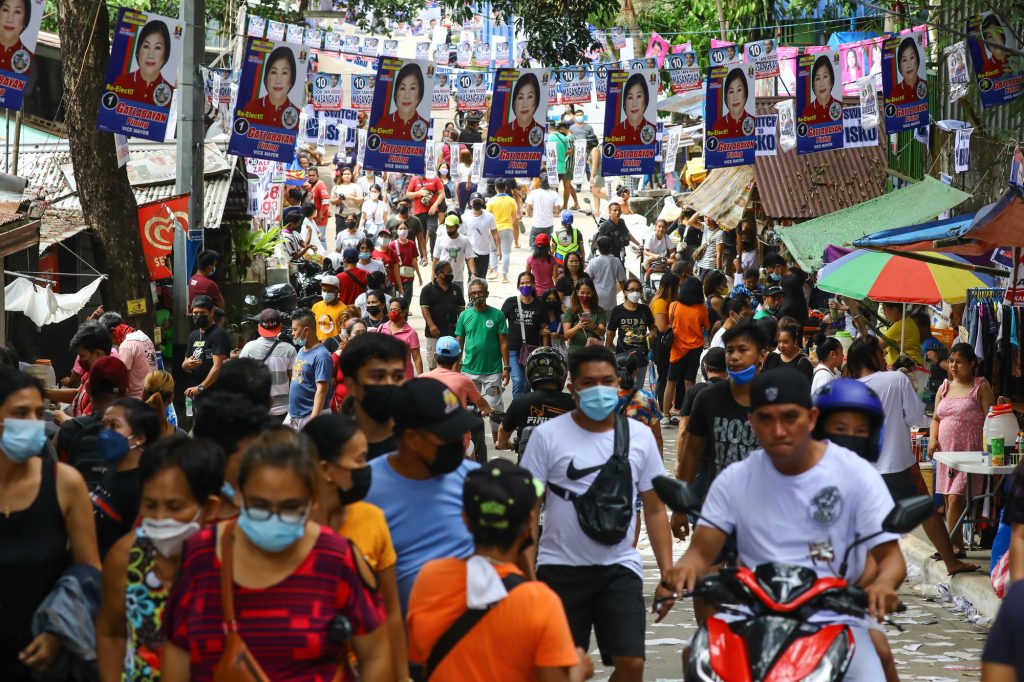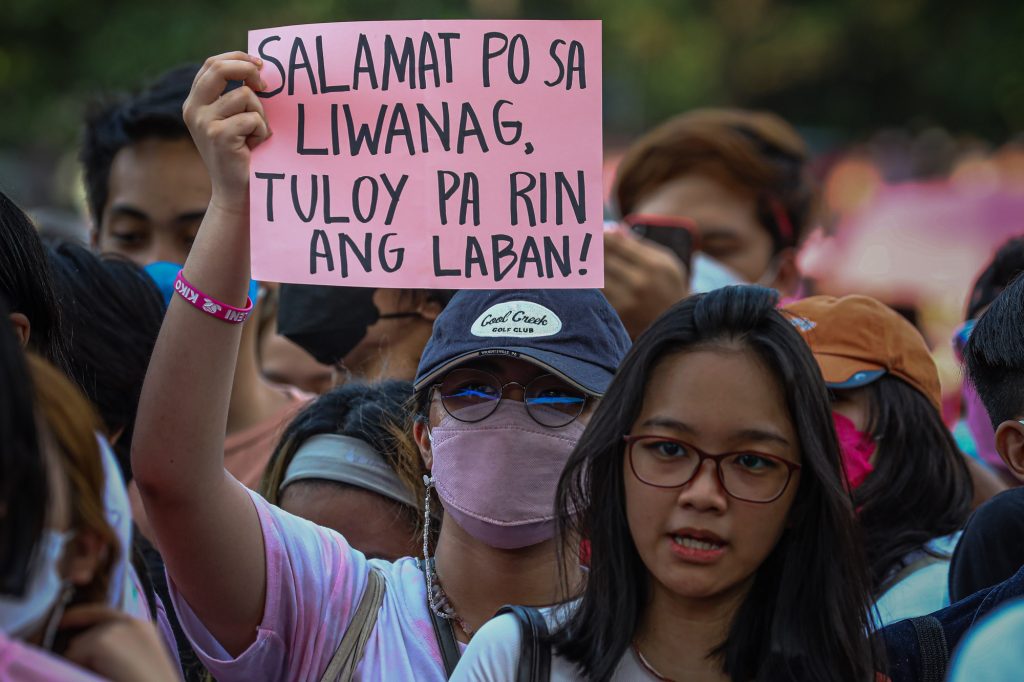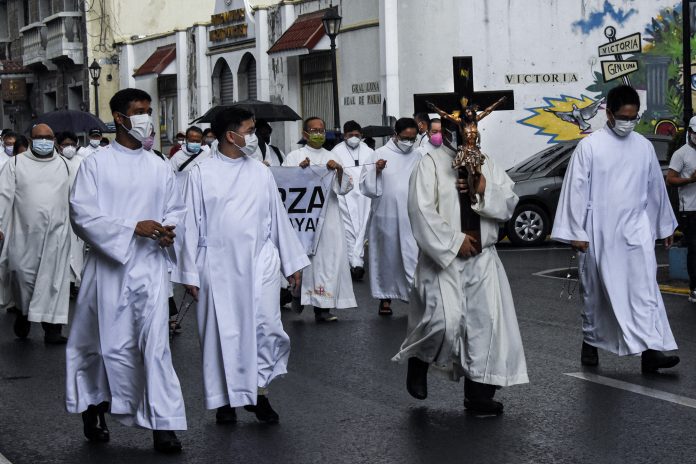This post-election reflections for the clergy of the Apostolic Vicariate of Calapan is originally posted on the website of Caritas Philippines, the social action arm of the Catholic Bishops’ Conference of the Philippines.
Pope Francis acknowledges that politics is not bad per se, as many people would assume. On the contrary it can be construed as a noble exercise of love for neighbor – “a lofty vocation and one of the highest forms of charity, inasmuch as it seeks the common good.” (Fratelli Tutti).
However, the reality we have in the Philippines in how politics is manipulated to serve the family and crony interests is far from the ideal, given the graft-ridden history of our country, with Marcos dynasty considered as the “most greedy dynasty in the world.”
The CBCP in its Pastoral Exhortation on Philippine Politics (no. 7) observed that: “Philippine politics – the way it is practiced – has been the most hurtful of us as a people. It is possibly the biggest bane in our life as a nation and the most pernicious obstacle to our achieving full development.”
The recent election result, with the Marcos dynasty and their cohorts making a comeback, including recycled politicians convicted of graft, was astoundingly unsettling and deplorable, putting into question the moral compass of the Church in its mission to provide guidance to the faithful in choosing what is right, and in following the moral standards of principled political participation.
Bp. Pablo Virgilio David challenged us all during the campaign period: “We should in fact be ashamed to call ourselves Christians if we don’t actively participate in getting trustworthy candidates voted into office. That is, if we care at all about the future of our country.”
Thus, we cannot blame some social scientists in concluding that Marcos victory shows the failure of the Catholic leaders to vote for the right candidates and to stand guard against fake news and propaganda machine that contributed to the successful return to power of the Marcoses.
The debate over the kind of involvement that the Church should play in electoral arena, whether for the laity or for the clergy, is now water under the bridge. But looking back, we need to further reflect on role of the Church in the light of the “forces of evil at work in our society.” The Church taking a stand for the truth and in pursuing moral principles in political arena remains to be our standard criterion in view of our prophetic mission. We should continue to be partisan for the truth, justice, interest of the poor, common good, accountability and good governance.
What is being non-partisan? Bishop Jesse Mercado of the Diocese of Paranaque gives us his take on the matter: “We failed in the past to properly guide our lay faithful to discernment because we always would excuse ourselves in the spirit of political neutrality, and not get involved. But isn’t that precisely against what we are teaching them? To get involved? We should accompany and encourage our people to make the right choice. And this is our new understanding of what non-partisanship is.”

Moving on: 31 million votes and vox Dei
The common prevailing sentiment after the election is to readily concede and accept the result of our democratic exercise, as the great majority has made their judgement, regardless of questionable political legitimacy, and notwithstanding the allegation of fraud in automatic election systems.
There are sectors within the Church (and even from Robredo’s Pink movement), who, with no qualms, has offered to “officially congratulate Bongbong Marcos Jr. as the next president of the Republic of the Philippines” and vowed to collaborate with his government, albeit critically, while praying that this administration will be guided by justice and fueled by true patriotism.
But there are those who find it problematic to accept Marcos questionable victory. It’s because there’s something wrong with how democracy was corrupted to the lowest level, with pandemic of lies and insidious manipulation. The CBCP Pastoral Letter was very clear about it: “But we are appalled by the blatant and subtle distortion, manipulation, cover-up, repression and abuse of the truth, like: historical revisionism – the distortion of history or its denial; the proliferation of fake news and false stories; disinformation – the seeding of false information and narratives in order to influence the opinion of the people, to hide the truth, to malign and blackmail people. There are troll farms which sow the virus of lies.”
Thus, there is a valid clamor that we do not legitimize deception. Cooptation for the sake of expediency – to preserve the country’s unity, is to surrender our country in the hands of crooks and scoundrels. And it is making democracy a farce, vox populi, vox diaboli (in the term popularized by Peter Viereck).
The voice of the mob is not always the voice of God. Former Chief Justice Serreno asserts, with matching scriptural quote: “It is not God who has mismanaged our democracy, it is we the people who have failed to make it work. Samuel warned the Israelites about the bitter fruit of choosing a king who could eventually abuse his power; nevertheless the Israelites insisted on installing a king contrary to God’s expressed will (1 Samuel 8:22).”
Moreover, we need to note that “Vox Populi, Vox Dei” is NOT a Church doctrine. Bishop Gerry Alminaza clearly explains: “Yes, we are told to respect authority and public officials. Yes, we are told to follow the Law and to work for the Common Good of our respective communities and nations. And yes, we are also taught to value democracy and all its fruits: the recognition of human rights and dignity, and the power of the ballot, among others. But there are times when the Voice of the People – even if they speak in astounding unison – cannot be mistaken for the Voice of God. There are times when people are misled by lies, or threatened by force, or rewarded for believing what they know to be untrue.”
This issue majority rule, if they are blinded and manipulated by paid political machinery cannot be justifiably invoked, as they will lead the country into peril. And Jesus has admonition for them: “Let them alone; they are blind guides of the blind. And if a blind man guides a blind man, both will fall into a pit.” (Matthew 15:14)

What lies ahead
To guide us on how to move forward together as a Church, we reflect on the words of wisdom of Bp. Virgilio Pablo David, President of the CBCP: “It is important to keep a good attitude and remain focused as we “move forward” together. We should not surrender our hope to the forces of evil at work in our society. The factors that continue to challenge our democratic institutions have been made more obvious by this election: well-funded trolls that are very successful in conditioning minds through mass disinformation in the social media, and massive vote-buying now made easier by online cash transfers. Remember, Jesus taught his disciples to be “innocent as doves but clever as serpents.”
What gives us hope is the reawakened sense of patriotism among many sectors in Philippine society, especially among our young people who have discovered the power of solidarity for the common good. Their desire to give a more concrete expression to responsible citizenship as the key to achieving good governance has been strongly manifested in their many spontaneous acts of volunteerism. I call it a rediscovery of what we used to call “people power.”
Now it has to be harnessed through the creation of well-thought out, well-planned, and better organized mass movements that will not only protect our democratic institutions but will also contribute proactively towards community development on the grassroots level and the formation of a better, more mature political culture. We have Pope Francis’ Fratelli Tutti and the Catholic social teachings that can guide us in these endeavors.”









